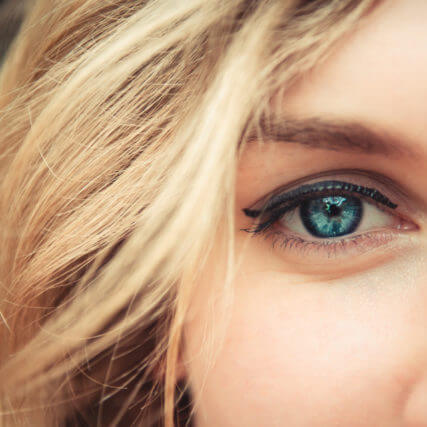
Our Lens Experts Explain How to Choose
Monthly lenses were the gold standard when contact lenses were first released into the consumer market. However, nowadays there are many more types of quality, comfortable lenses out there, and monthly lenses are no longer the popular standard. We offer a wide selection of dailies and monthlies are available in our contact lens collection.
Every individual needs to choose the type of contacts that best matches their vision prescription and lifestyle. To do this, a number of issues must be taken into consideration. To assist our patients in making this decision, we offer you an explanation of the main differences between daily and monthly contact lenses:
Do daily lenses and monthly lenses cost the same?
The expense is comparable. Note that dailies can be pricier if you’re switching them more frequently than once a day, yet monthlies come along with the cost of cleaning solutions for sterilizing and storing your lenses.
Learn the Basics of Daily and Monthly Lenses
Disposable contact lenses are extremely popular these days. As an alternative to hard lenses of the past and rigid gas permeable lenses of today, they are generally considered to be far superior in comfort and wearability. They come in many different varieties, and it is important to know which is best for you. Below, our trusted Federal Way eye care professionals give you a brief explanation of some of the major types of disposable contact lenses on the market today.
Daily Lenses
Although more expensive than monthly and bi-weekly contacts, daily disposable contact lenses are an increasingly popular alternative, because they offer the same crystal clear vision, without the need to ensure proper storage and cleaning at the end of each day. Daily disposables allow contact lens wearers the ability to simply throw away each day's pair of contacts before bed, and open a brand new pair the very next day to enjoy the benefits and comfort of clean, clear, crisp contact lenses.
Dangerous calcium or hairspray deposits, normally associated with bi-weekly and monthly contact lenses, are no longer an issue, and the chances of developing contact lens-related eye infections, normally associated with monthly and bi-weekly contact lenses, become almost a non-issue.
Many disposable contact lenses, of all varieties, also offer tints and colors that may accent your natural eye color or change your eye color altogether. Those with Presbyopia normally would need to have bi-weekly or monthly contacts, although new daily disposable options are also beginning to emerge. For more information, speak with our eye doctors in Renton or Federal Way today.


Bi-Weekly and Monthly Contact Lenses
Replaced either monthly or bi-weekly, these contact lenses are thicker than daily disposables. The thicker composition makes them more durable and long-lasting, and they are usually more resistant to drying out.
Monthly and bi-weekly disposable contact lenses require more upkeep than daily disposables, requiring daily cleaning and storage in proper contact lens solution. They are, however, more economical overall, since less material goes into making them and you do not have to buy contact lenses as often.
Additionally, monthly and bi-weekly contact lenses offer the possibility of extended wear, which allows up to 30 days of continuous day and night contact lens wear, without the necessity of taking them out.
Monthly lenses are available in an extensive range of prescriptions, and we keep a full inventory in our boutique contact lens store.
What is your vision correction prescription?
Not all contacts are available for all prescriptions. Your vision prescription is therefore one of the most important factors to take into account when selecting suitable contact lenses. As monthlies are made with a harder composition, they are able to give better vision at higher magnifications. If you have a more complex correction, such as toric (astigmatism) or multifocal, then a monthly contact lens may be the only reliable way for you to enjoy sharp vision with lenses.
Are your eyes sensitive?
Some people experience irritation in response to particular contact lens materials. If you have sensitive eyes, you may need lenses with a higher water content or increased oxygen permeability so that they feel comfortable. Dailies and monthlies differ with respect to many of these characteristics. Our experienced optometrists will evaluate your eyes to recommend the best composition of lenses for your personal condition. Nowadays, there are so many types of contacts that even people with sensitive eyes can enjoy comfortable vision with their contact lenses.


Where and when do you plan to wear your contacts?
Sports players or anyone who is very physically active may prefer the convenience of daily lenses, as they can be removed and replaced instantly after contact with dirt, water, sunscreen or sweat. The disadvantage of daily lenses for anyone with an active lifestyle is that the thinner contacts tend to dry out more quickly.
If your plan is only to wear contacts occasionally, this is one of the best reasons to purchase daily lenses. Packs generally come with 30 lenses, and therefore a one-month supply will last you quite a while – with no need to buy expensive disinfectants or replenish your lenses frequently.
If you intend to spend the bulk of your day in a controlled environment, such as an office or home, then monthly lenses may be preferred. Time isn’t as pressured and you’ll have plenty of opportunity to sterilize the lenses, as needed. If you’ll need to remove your contacts more than once a day, or switch back and forth between eyeglasses and contacts daily, monthly wear lenses are also recommended.
Are Monthly or Daily Contacts Better?
If you can achieve crisp vision for your eyes with either monthly or daily lenses, then the final decision is a personal one related to your lifestyle. This is a choice that you and your professional eye doctor should make together! For more information and to schedule a contact lens fitting, contact us and we’ll provide you with full contact lens services.
